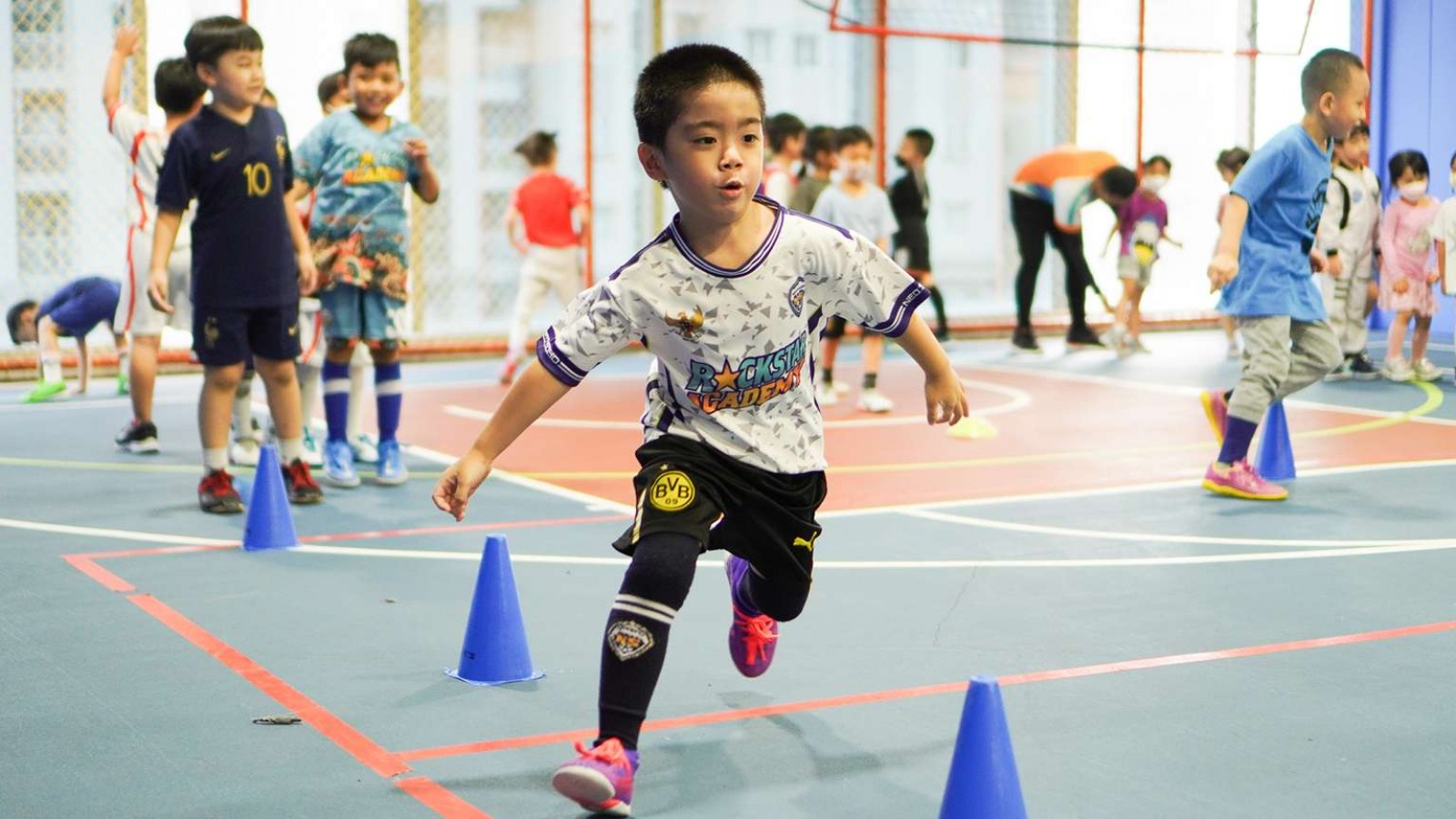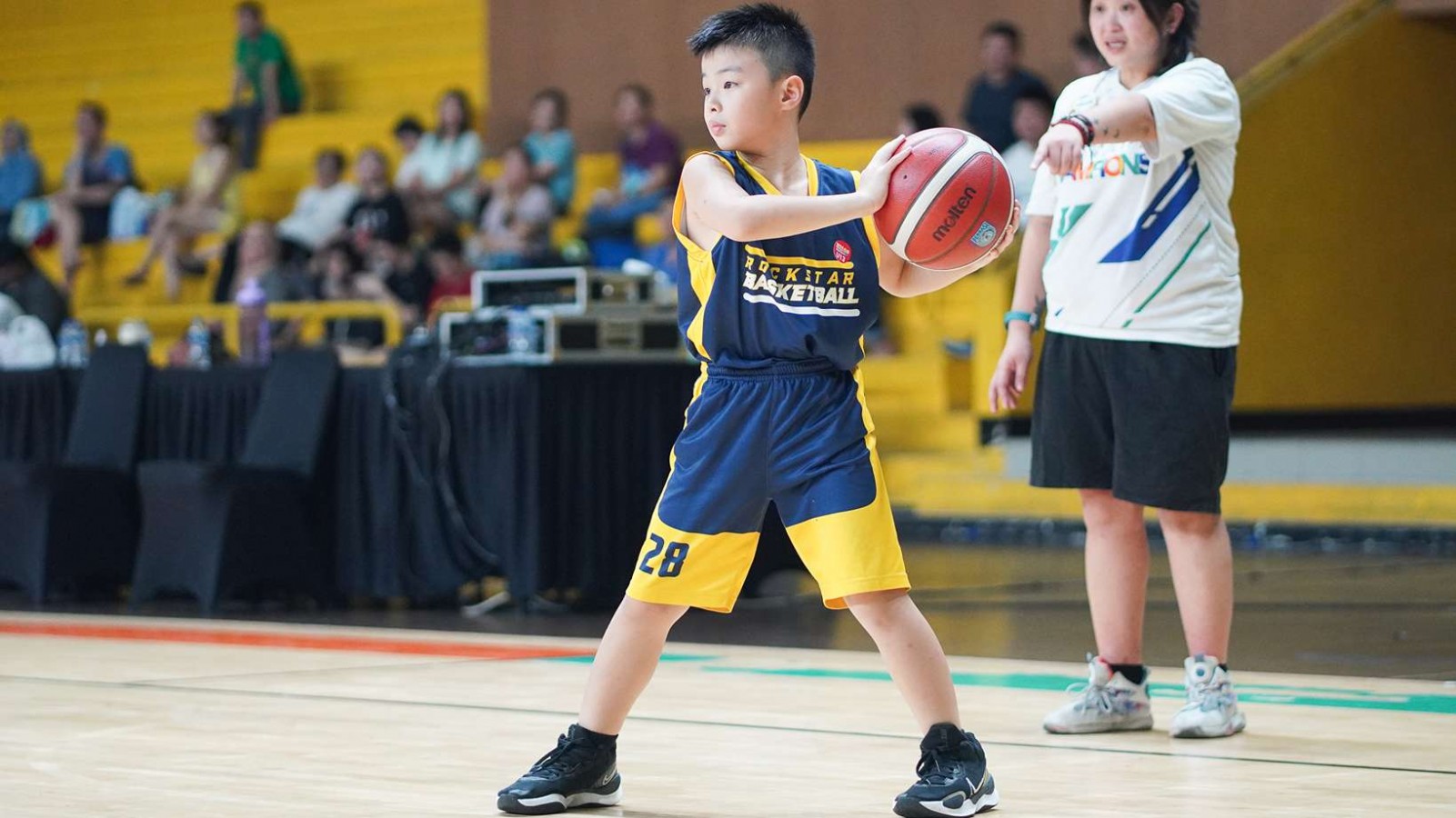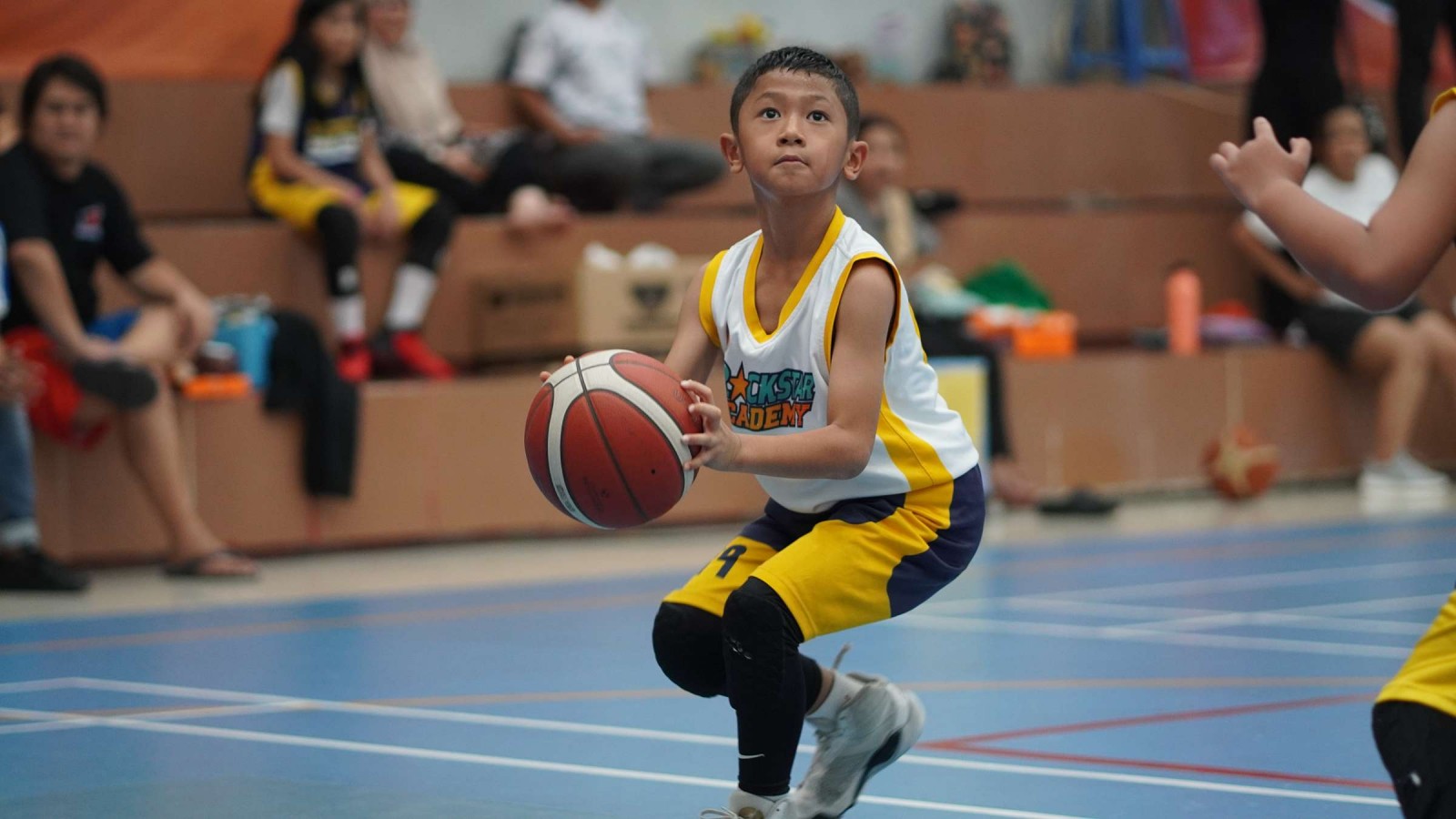What Are The Rules of Futsal? Check It Here!

Futsal has gained immense popularity especially among teenage boys. Played indoors on a smaller field with five players on each team, including the goalkeeper, futsal requires quick thinking, skillful footwork, and tactical precision.
To ensure fair play and maintain the integrity of the game, futsal is governed by a set of rules and regulations that dictate everything from gameplay to player conduct. In this article, we will delve into the rules of futsal, including general regulations, substitutions, fouls, and misconduct.
Rules of Futsal
Every game has rules that apply so that the game becomes more exciting or even can be played properly. These rules can be an advantage or disadvantage depending on the player/team.
With rules, players cannot be arbitrary in playing and provide justice for each player or team. Here are some general rules in futsal :
A. General Rules
1. Field of Play
Futsal is played on a hard court surface with dimensions typically ranging from 25-42 meters in length and 16-25 meters in width.
2. Duration of the Game
A standard futsal match consists of two halves, each lasting 20 minutes, with a 10-minute halftime break.
3. Players
Each team comprises five players, including one goalkeeper. Substitutions are unlimited and can be made at any time during the game.
4. Scoring
Goals are scored when the ball crosses the goal line between the goalposts and under the crossbar. The team with the most goals at the end of the match wins.
B. Substitutions
1. Unlimited Substitutions
Futsal allows for unlimited substitutions, which can be made at any stoppage in play with the referee's permission.
2. Substitution Procedure
Players must leave the field before their replacement enters to maintain the maximum number of players on the court at all times.
3. Quick Substitutions
Teams often utilize quick substitutions to maintain a high tempo and exploit tactical advantages during the game.
C. Fouls and Misconduct
Futsal has specific rules governing fouls and misconduct to ensure player safety and fair play. Understanding these rules is crucial for players, coaches, and referees alike.
1. Direct Free Kick Fouls
- Kicking or attempting to kick an opponent.
- Tripping or attempting to trip an opponent.
- Jumping at an opponent.
- Charging an opponent in a violent or dangerous manner.
- Striking or attempting to strike an opponent.
- Holding an opponent.
- Pushing an opponent.
- Sliding in a manner that endangers an opponent.
- Handling the ball intentionally, except by the goalkeeper within their penalty area.
2. Indirect Free Kick Fouls
- Dangerous play, such as high kicking near an opponent's head.
- Impeding the progress of an opponent.
- Preventing the goalkeeper from releasing the ball from their hands.
- Goalkeeper handling the ball again after releasing it and before it has touched another player.
3. Misconduct
a. Yellow Card
Given for unsporting behavior, dissent, persistent infringement of the rules, delaying the restart of play, or any other misconduct.
b. Red Card
Issued for serious foul play, violent conduct, spitting at an opponent or any other person, denying an obvious goal-scoring opportunity, or using offensive, insulting, or abusive language or gestures.
Benefits of Playing Futsal for Children
Playing futsal, a variant of soccer played on a smaller indoor court with a smaller, heavier ball, offers numerous benefits for children, both physically and mentally. Here's an elaboration on some of these benefits:
1. Improves Cardiovascular Health
Futsal is a high-intensity sport that involves constant running, sprinting, and quick changes in direction. Regular participation in futsal helps to improve cardiovascular endurance, strengthens the heart, and enhances overall physical fitness.
2. Develops Motor Skills
Futsal requires precise control of the ball using the feet, which helps in refining motor skills such as coordination, agility, and balance. Children learn to manipulate the ball skillfully, improving their overall dexterity.
3. Enhances Decision Making
Futsal is a fast-paced game that demands quick thinking and decision making. Players must constantly assess the situation, anticipate opponents' moves, and make split-second decisions. This enhances cognitive abilities and helps children develop better problem-solving skills.
4. Promotes Teamwork and Communication
Futsal is a team sport that requires effective communication and collaboration among players. Children learn the importance of teamwork, how to work together towards a common goal, and how to communicate effectively both on and off the field.
5. Boosts Confidence and Self-Esteem
As children develop their skills and contribute to their team's success, they gain confidence in their abilities. Successes on the futsal court can translate to increased self-esteem and a positive self-image off the field as well.
6. Teaches Discipline and Sportsmanship
Futsal instills discipline in children through adherence to rules, respect for teammates, opponents, and officials, and acceptance of outcomes, whether winning or losing. It also teaches sportsmanship by emphasizing fair play, integrity, and respect for others.
7. Provides Social Interaction
Playing futsal offers children the opportunity to interact with peers in a fun and engaging environment. They develop friendships, learn how to cooperate with others, and build social skills that are invaluable both on and off the field.
Let's Play Futsal!
In futsal or any other game, rules are enforced to make the game more exciting and to give fair play to every team without exception. To gain more knowledge and be assured of this futsal rule, you can enroll your child to a futsal class free trial from Rockstar Academy. Then if it feels suitable, you can immediately register at Rockstar Academy.
Rockstar Academy offers a comprehensive futsal program tailored for children eager to grasp the intricacies of the sport. Designed for beginners keen on mastering the rules and techniques of futsal, our curriculum provides a structured pathway to proficiency.
Moreover, within this program, participants have the exciting prospect of competing in esteemed events such as the RockOlympics and Futsal Elite Championship. These competitions not only serve as platforms for showcasing newfound skills but also as catalysts for personal growth.
Rockstar Academy is also the best Sports & Performing Arts Academy for children that offers various sports classes such as basketball, dancing, gymnastics and many more. We have over 13 Academies located throughout the greater Jakarta area.
Each Academy provides more than 120 high-quality classes per week ranging from Early Childhood Education, Gymnastics, Dance, Ballet, Cheerleading, Broadway, Martial Arts and Sports that can meet the unique needs of any student. So if you are interested in any classes, make sure to contact Rockstar Academy right away!
FAQ
What are the basic rules of futsal?
The basic rules of futsal include playing on a hard court surface with two halves of 20 minutes each, five players on each team (including a goalkeeper), unlimited substitutions, and goals scored when the ball crosses the goal line between the goalposts and under the crossbar.
Can players use the walls in futsal?
No, players cannot use the walls in futsal. Unlike indoor soccer, futsal does not allow players to play the ball off the walls.
How long can a goalkeeper hold the ball?
A goalkeeper can hold the ball for up to four seconds within their penalty area. After that, they must release the ball into play.
Can players slide tackle in futsal?
No, slide tackles are not allowed in futsal. Sliding in a manner that endangers an opponent is considered a foul.
What happens if a player receives a red card?
If a player receives a red card, they are ejected from the game, and their team must play with one less player for the remainder of the match. Additionally, the player may face further disciplinary action depending on the severity of the offense.



